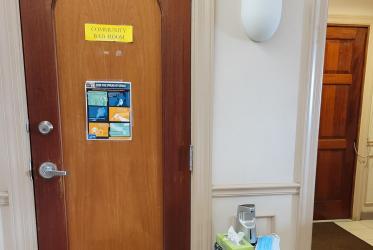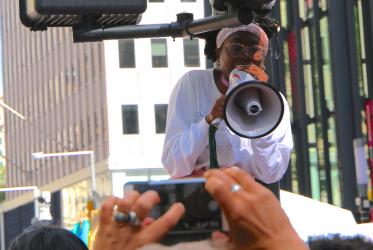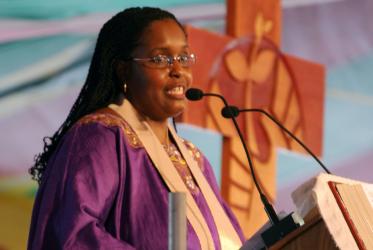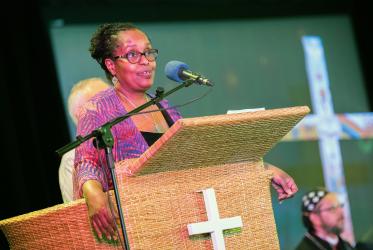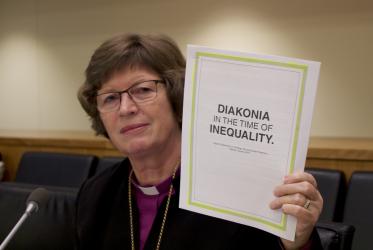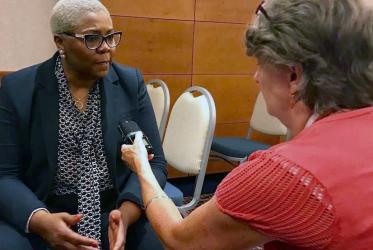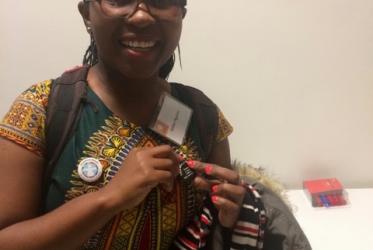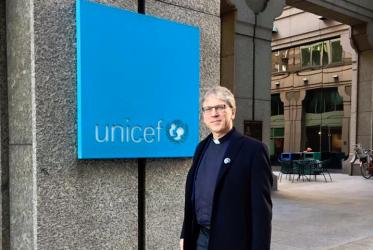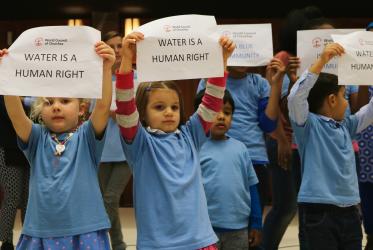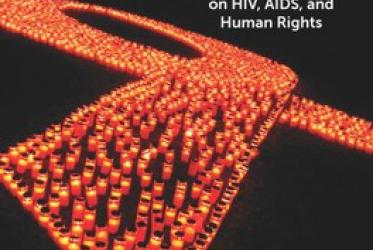Displaying 1 - 20 of 31
“Bathroom ministry” for the homeless
14 December 2021
American and Swedish church leaders sign joint climate justice pledge
26 September 2019
Dr Saïd Ailabouni: God is on the side of rejected, oppressed, occupied
12 September 2019
Funeral celebrates life of Rev. Robina Winbush
26 March 2019
Sustainable resourcing for sustainable development
05 February 2019
How can you help refugees?
11 October 2018
Rev. Traci Blackmon: people of faith must not be silent
21 September 2018
Religious organizations speak up on refugee crisis at UN event
29 January 2018
Tveit: Beyond national borders, we are one humanity
23 January 2018
“Good healthcare a right, not a privilege,” says WCC-EAA
11 October 2017
WCC book featured in UN discussion on gender, religions and health
16 September 2016

